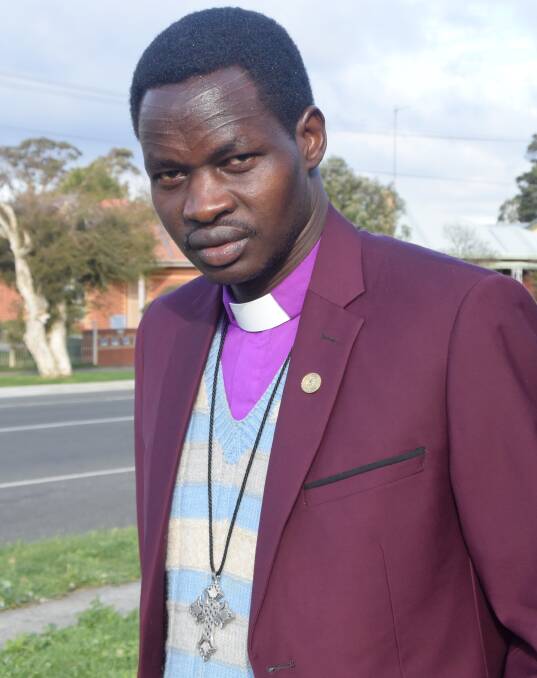
Imagine being unable to drive from one side of Ballarat to the other without the real possibility of being raped or murdered. That’s the reality of living in the capital of the world’s newest country, South Sudan.
Subscribe now for unlimited access.
$0/
(min cost $0)
or signup to continue reading
Bishop Peter Kunen’s story is well-known to many in Ballarat. Orphaned by the death of his father in a militia attack in 1989, Peter fled east into Ethiopia at the age of 11, and spent more than a decade in refugee camps, experiencing atrocious conditions. He met his future wife there and became a committed Christian, before migrating to Australia in 2004.
Since then he has worked as a priest in Colac and is now a bishop in Ballarat, and finds himself ministering to Sudanese arrivals in the region as well as the wider community.
There is a sadness in Bishop Kunen’s voice as he talks about the latest outbreak of violence in Juba, South Sudan’s capital, and across the country in general. The country has been swept by warfare since 98 per cent of the population voted for independence in 2011, and fighting is now taking place between forces loyal to the president Salva Kiir and soldiers supporting the vice-president Riek Machar.
“The latest conflict has displaced many people again, and has caused a lot of deaths now,” says Bishop Kunen.
“As someone who has come from there, I want to explain how hard it is for us, for our people, to see this again. I would like the people of Ballarat to pray for us, for the people there to stop that fighting, that conflict, that senseless war.”
The difficulty of forming a functioning democracy in a country that has had so much of its infrastructure destroyed and has up to 1.5 million of its citizens either internally uprooted or fleeing to neighbouring nations is also something that Bishop Kunen would like to see resolved.
“This is not a religious war. We need to make transitions, transfer political power by elections and not by the military. Most of our leaders were the military, and they want to rule the country. If we had elections, people could choose. Part of being a free country is to separate politics and the military.”


